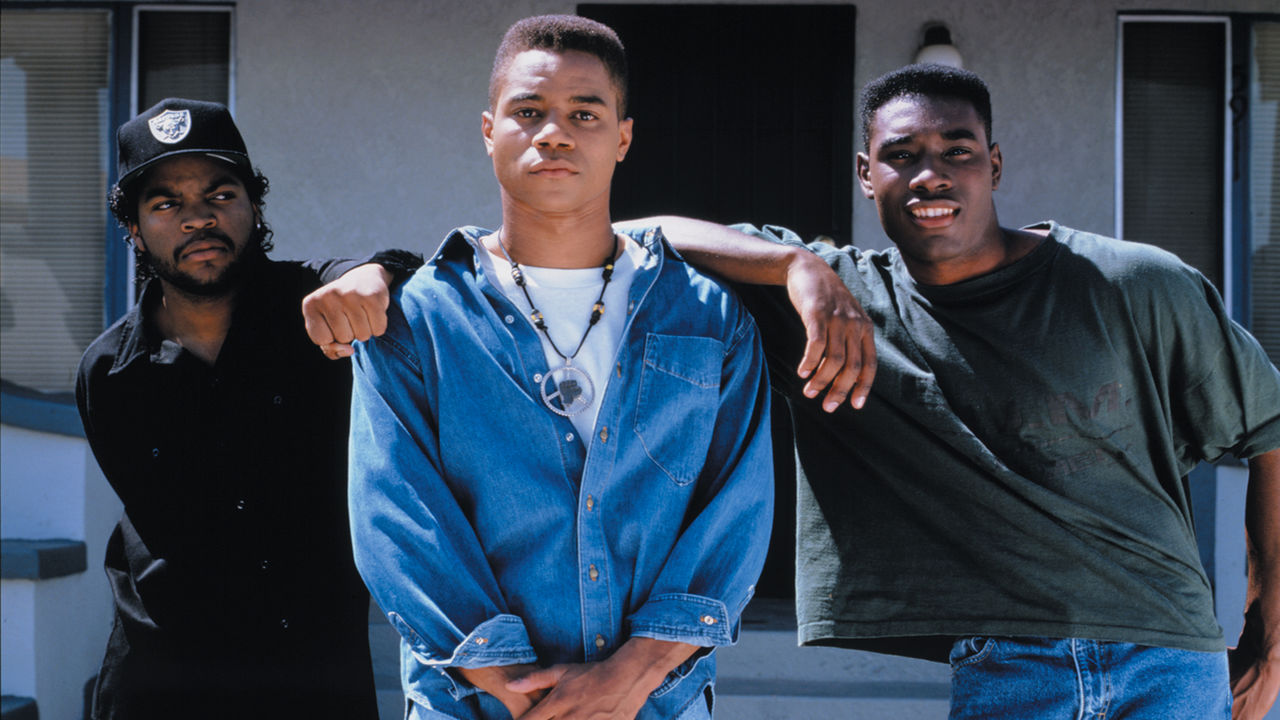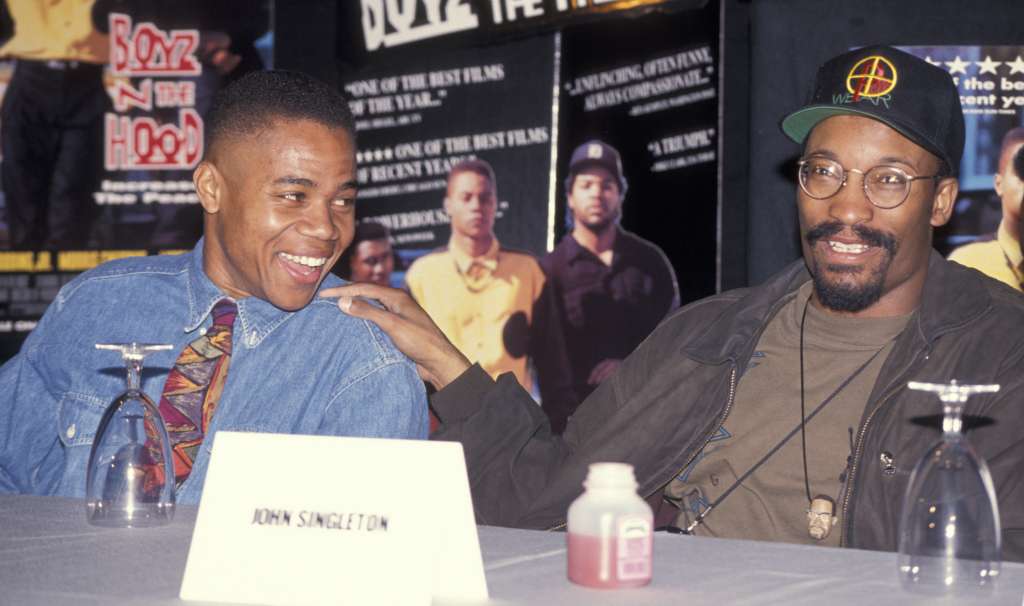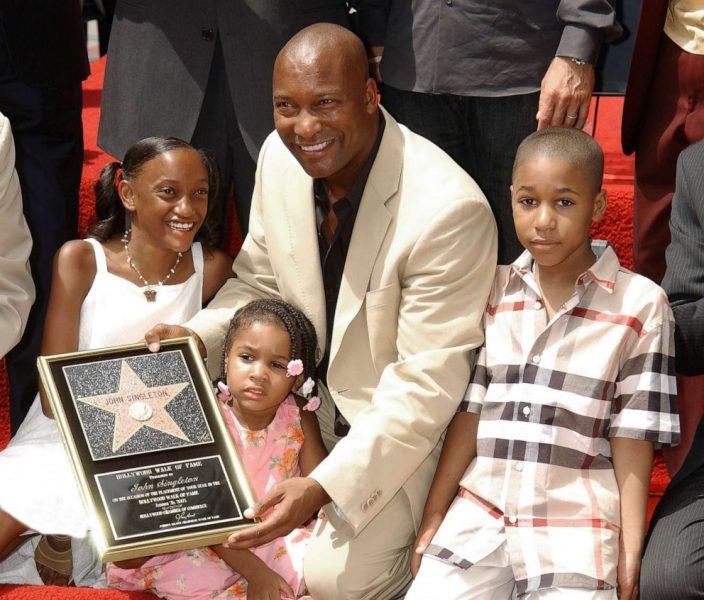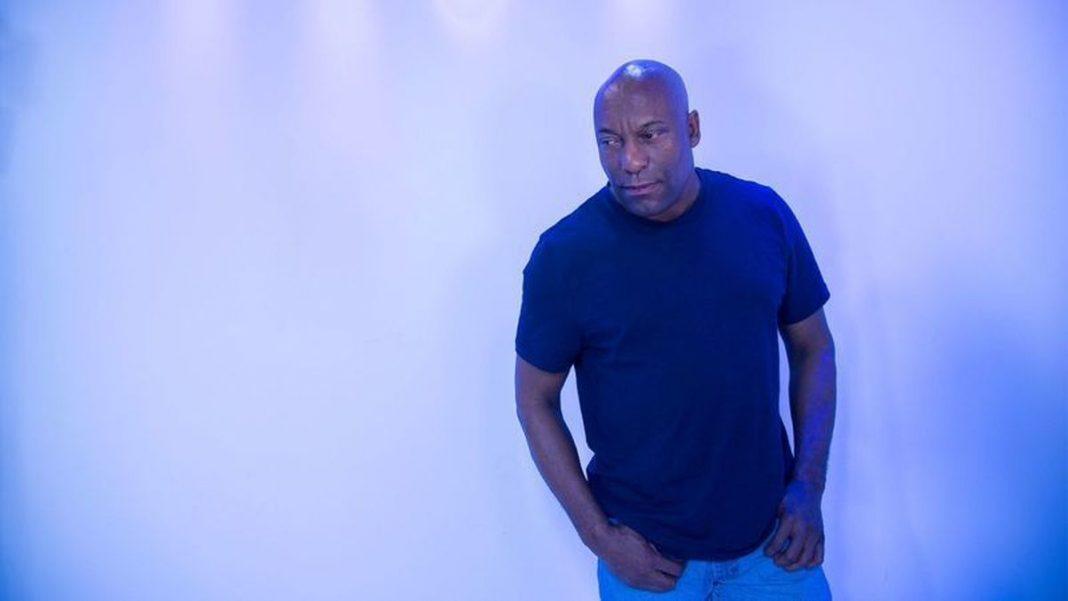
Director John Singleton was a trailblazer for young filmmakers as he was the youngest and first African American to be nominated for Best Director Oscar at the 1992 Academy Awards after the massive success of his first film “Boyz N the Hood.” He was also nominated for Best Screenplay for a film that opened America’s eyes to parts of Los Angeles they weren’t used to seeing.
Singleton, who made one of Hollywood’s most memorable debuts with the Oscar-nominated “Boyz N the Hood” and continued over the following decades to probe the lives of black communities in his native Los Angeles and beyond, has died. He was 51.
Singleton’s family said Monday that he died in Los Angeles, surrounded by family and friends, after being taken off life support. Earlier this month, the director suffered a major stroke.
On Twitter, Ava DuVernay summed up Singleton’s impact and legacy, especially among black filmmakers, writing, “There aren’t many of us out here doing this. It’s a small tribe in the grand scheme of things. He was a giant among us. Kind. Committed. And immensely talented. His films broke ground. His films mattered. He will be missed. And long remembered. Thank you, John.”
Samuel L. Jackson, who starred in Singleton’s 2000 remake of Shaft, said, “Mourning the loss of a collaborator & True Friend John Singleton. He blazed the trail for many young film makers, always remaining true to who he was & where he came from!!! RIP Brother. Gone Way Too Soon!”
Singleton was in his early 20s, just out of the University of Southern California’s School of Cinematic Arts, when he wrote, directed and produced “Boyz N the Hood.” Based on Singleton’s upbringing and shot in his old neighborhood, the low-budget production starred Cuba Gooding Jr. and Ice Cube and centered on three friends in South Central Los Angeles, where college aspirations competed with the pressures of gang life. “Boyz N the Hood” was a critical and commercial hit, given a 20-minute standing ovation at the Cannes Film Festival and praised as a groundbreaking extension of rap to the big screen, a realistic and compassionate take on race, class, peer pressure and family. Singleton would later call it a “rap album on film.”
Released in July 1991, “Boyz n the Hood” arrived at a fraught cultural moment, months after the LAPD’s beating of Rodney King, amidst the ongoing crack epidemic, the devastating War on Drugs and continued gang violence. But it was also part of a black arts vanguard — gangsta rap, and hip-hop in general, was more popular than ever (N.W.A.’s Ice Cube starred in the film), and “Boyz n the Hood” was one of 19 movies by black filmmakers that would be released in 1991, more than any other year in the past decade. “Boyz N the Hood” also came out at a time when, thanks to the efforts to Spike Lee and others, black films were starting to get made by Hollywood after a long absence.
Though “Boyz n the Hood” was a financial and critical success, the film was also myopically maligned as a “gang movie” and much of the early media attention around the film focused on the violence that broke out at theaters on opening weekend. Some also accused the movie of pandering to this violence with a trailer that highlighted the few moments of gunplay in the film, while minimizing the more prominent dramatic elements.
“It got motherfuckers in the theater,” Singleton said in interviews. “That’s the bottom line. If the trailer for “Terminator 2”showed the part where he agreed not to kill anyone, nobody would have gone to see it… People went with lower expectations; they thought it was the same old bullshit action-adventure in the streets of South Central L.A. But when they saw it was more, they really watched it.”
For many, the release captured the explosive mood in Los Angeles in the months following the videotaped police beating of Rodney King.
Singleton became the first black director to receive an Academy Award nomination, an honor he would say was compensation for the academy’s snubbing Lee and “Do the Right Thing” two years earlier, and was nominated for best screenplay. (“Thelma & Louise” won instead.) At 24, he was also the youngest director nominee in Oscar history.
“I think I was living this film before I ever thought about making it,” Singleton told Vice in 2016. “As I started to think about what I wanted to do with my life, and cinema became an option, it was just natural that this was probably gonna be my first film. In fact, when I applied to USC film school they had a thing that asked you to write three ideas for films. And one of them was called ‘Summer of ’84,’ which was about growing up in South Central LA.”
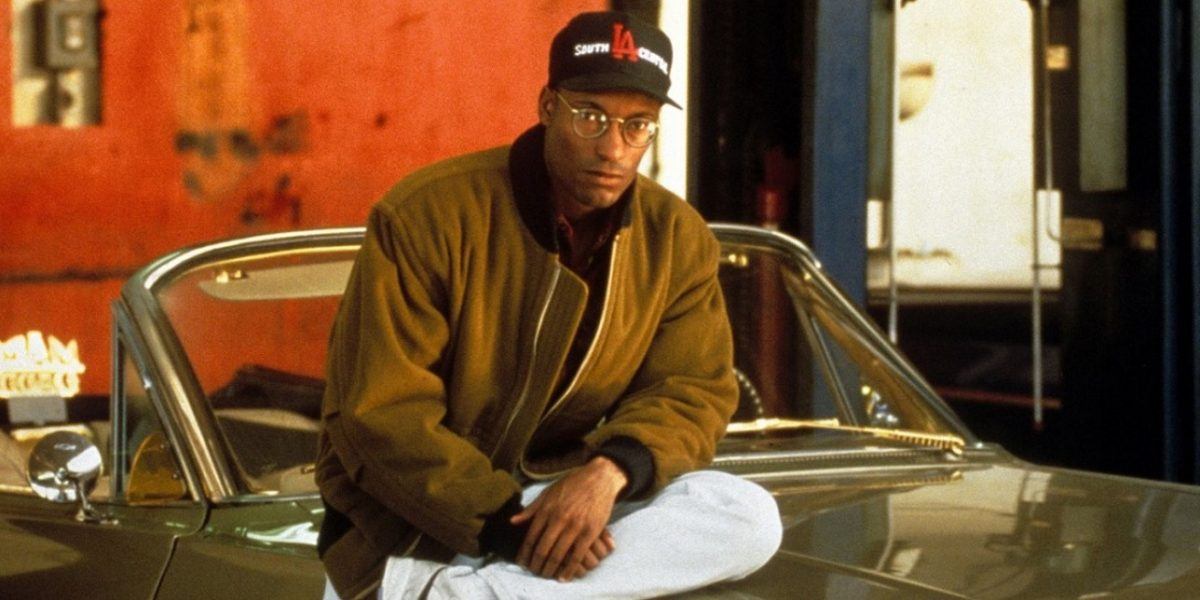
In 2002, “Boyz N the Hood” was added to the National Film Registry by the Library of Congress, which called it “an innovative look at life and the tough choices present for kids growing up in South Central Los Angeles.”
Singleton’s death Monday followed a turbulent week during which his family members made opposing court filings regarding his health. Singleton had been in intensive care in a Los Angeles hospital since he had a stroke on April 17. A court filing last week by his mother, Shelia Ward, requested that she be appointed Singleton’s temporary conservator in order to make medical and financial decisions while he was incapacitated.
Ward’s filing said that Singleton was in a coma. But on Friday, Singleton’s daughter Cleopatra Singleton, 19, filed a declaration disputing that account. She maintained that her father was not in a coma and that doctors did not “have a concrete diagnosis.” She opposed her grandmother becoming conservator, or guardian.
“It is with heavy hearts we announce that our beloved son, father and friend John Daniel Singleton will be taken off of life support today,” his family said in a statement. “This was an agonizing decision, one that our family made, over a number of days, with the careful counsel of John’s doctors.”
Singleton’s passing prompted widespread praise for a filmmaker who, as his “Shaft” star Samuel L. Jackson said, “blazed the trail for many young film makers,” while “always remaining true to who he was and where he came from.”
Spike Lee said, “We’ll miss you but your films will live on.” Jordan Peele, the Oscar-winning “Get Out” and “Us” filmmaker, called him “a brave artist and a true inspiration.”
“His vision changed everything,” said Peele.
None of Singleton’s subsequent movies received the acclaim of “Boyz N the Hood” and he was criticized at times for turning characters into mouthpieces for political and social messages. But he attracted talent ranging from Tupac Shakur to Don Cheadle and explored themes of creative expression (“Poetic Justice”), identity (“Higher Learning”) and the country’s racist past, notably in “Rosewood,” based on a murderous white rampage against a black community in Florida in 1923.
He also made the coming-of-age story “Baby Boy,” a remake of the action film “Shaft” and an installment in the “Fast and Furious” franchise, “2 Fast 2 Furious.” More recent projects included the FX crime drama “Snowfall,” which he helped create. Starring Damson Idris, “Snowfall” returned Singleton to the Los Angeles of his youth and the destructive effects of the rise of crack cocaine.
“Drugs devastated a generation. It gave me something to write about, but I had to survive it first,” Singleton told the Guardian in 2017. “It made me a very angry young man. I didn’t understand why I was so angry, but I wasn’t someone who took my anger and applied it inward. I turned it into being a storyteller. I was on a kamikaze mission to really tell stories from my perspective — an authentic black perspective.”
Singleton was married twice, and had five children. Besides his career in movies, Singleton also directed the memorable, Egyptian-themed video for Michael Jackson’s “Remember the Time,” which included Eddie Murphy and Magic Johnson. He cast hip-hop artists and other musicians in many of his films, including Ice Cube in “Boyz N the Hood,” Janet Jackson and Shakur in “Poetic Justice” and Tyrese Gibson in “Baby Boy.”
Following the success of “Boyz n the Hood,” Singleton continued to grapple with themes of racism and violence in coming-of-ages stories like the 1993 romantic drama “Poetic Justice” — starring Janet Jackson and Tupac Shakur — and 1995’s “Higher Learning.” In 1997, Singleton pivoted to historical drama with “Rosewood,” which was based on the 1923 Rosewood massacre in Florida, when a white mob decimated a black town.
During the 2000s, Singleton also proved his mettle as a blockbuster director, helming the 2000 reboot of “Shaft” as well as “2 Fast 2 Furious,” “Four Brothers,” and “Abduction.” He also eventually turned to television, directing episodes “of Empire and The People v. O.J. Simpson: American Crime Story.” In 2017, his latest project, crime drama “Snowfall” premiered on FX. Set in Los Angeles in the early Eighties, the show chronicled origins and rise of the crack epidemic.
Singleton’s early success didn’t shield him from creative conflicts or frustration with Hollywood studios. He blamed the commercial failure of “Rosewood” on lack of support from Warner Bros. He fought with producer Scott Rudin during the making of “Shaft” and was furious when Rudin brought in author/screenwriter Richard Price to revise the script. He had planned to direct a biopic about Shakur, but quit after clashing with Morgan Creek Productions. In 2014, he chastised the industry for “refusing to let African-Americans direct black-themed films,” but Singleton was pleased in recent years by the emergence of Ava DuVernay, Barry Jenkins, Jordan Peele and others.
“There are these stacks of (films by non-black filmmakers) where black people have had to say, ‘OK, at least they tried,‘” he told The Hollywood Reporter in 2018, adding that now blacks were making the films themselves. “What’s interesting when you see ‘Black Panther’ is you realize it couldn’t have been directed by anybody else but Ryan Coogler. It’s a great adventure movie and it works on all those different levels as entertainment, but it has this kind of cultural through-line that is so specific that it makes it universal.”
Throughout his career, Singleton retained the vision and drive that persuaded the Columbia brass to let him direct “Boyz n the Hood” at such a young age and kept him a singular force in Hollywood for several decades. “Real acceptance comes when you make a good film, and it gets widely accepted as a good film,” he said in 1991. “It’s not about the novelty. Of course, there’s a lot of new black filmmakers now, but I ain’t no fucking novelty. I’m in it for the long haul. And if you ain’t in it for the long haul, you ain’t in it.”
“There’s hardly any precedent for a guy like me to have the career that I’ve had,” Singleton told Variety in 2017. “Because I grew up the way I grew up, I’m an in-your-face kind of guy. I developed that as a defense mechanism to survive in the streets. I do that in Hollywood in the service of my passion.”
Celebrities React To John Singleton’s Death
Notable reaction to the death of “Boyz N the Hood” filmmaker John Singleton:
“With His Passion, His Heart, The Way He Talked About His Love For Cinema And Black Folks I Could See John Would Make It Happen. And He Did. From Day One.” — Spike Lee, via Instagram.
“So sad to hear about John. I met him way before he did ‘Boys in the Hood.’ He had more drive then anybody I’ve ever met.” — Chris Rock, via Instagram.
“Thank you for all that you gave to the world the movies the messages the opportunities to so many people like myself to grace the big screen in a major role with major black actors you were and will allways be black excellence love you for life and beyond.” — Snoop Dogg, via Instagram.
“Rest In Power, my friend. One of the greatest to ever do it. Thank you GOD for blessing us with this gift better known as John Singleton.” — “Boyz N the Hood” actor Regina King, via Instagram.
“Mourning the loss of a collaborator & True Friend John Singleton. He blazed the trail for many young film makers, always remaining true to who he was & where he came from!!! RIP Brother. Gone Way Too Soon! — “Shaft” actor Samuel L. Jackson, via Twitter.
“RIP John Singleton. So sad to hear. John was a brave artist and a true inspiration. His vision changed everything.” — Jordan Peele via Twitter.
“John is admired for putting a lot of people of color to work throughout his career. Our prayers are with his children and family members. He will be sorely missed.” — Magic Johnson, via Twitter.
“The magnitude and world-wide impact that his ground-breaking film would have for society cannot be measured. Helping to bring awareness of what it takes to come to maturity as a black male in the ’Hood, or die trying…” — “Boyz N the Hood” actor Morris Chestnut, via Instagram.
“Over the course of his illustrious career, John remained steadfast in telling stories that illuminate the daily challenges faced by African Americans, particularly those living in the inner city.” — John Landgraf, chairman of FX Networks and FX Productions, in a statement.
“John didn’t just make his feature film debut in 1991 with Boyz n the Hood, he exploded into Hollywood, our culture and our consciousness with such a powerful cinematic depiction of life in the inner city.” — Directors Guild of America President Thomas Schlamme, in a statement.
“Cruel. Not what I want to say right now. But certainly how I feel. Cruel. Just… so cruel.” — Barry Jenkins, via Twitter.
“There aren’t many of us out here doing this. It’s a small tribe in the grand scheme of things. He was a giant among us. Kind. Committed. And immensely talented. His films broke ground. His films mattered. He will be missed. And long remembered. Thank you, John. #RunIntoHisArms” — Ava DuVernay, via Twitter.
“This one cuts deep. You’ll never be forgotten. Cause your work will live on.” — Writer-producer Lena Waithe, via Twitter.


